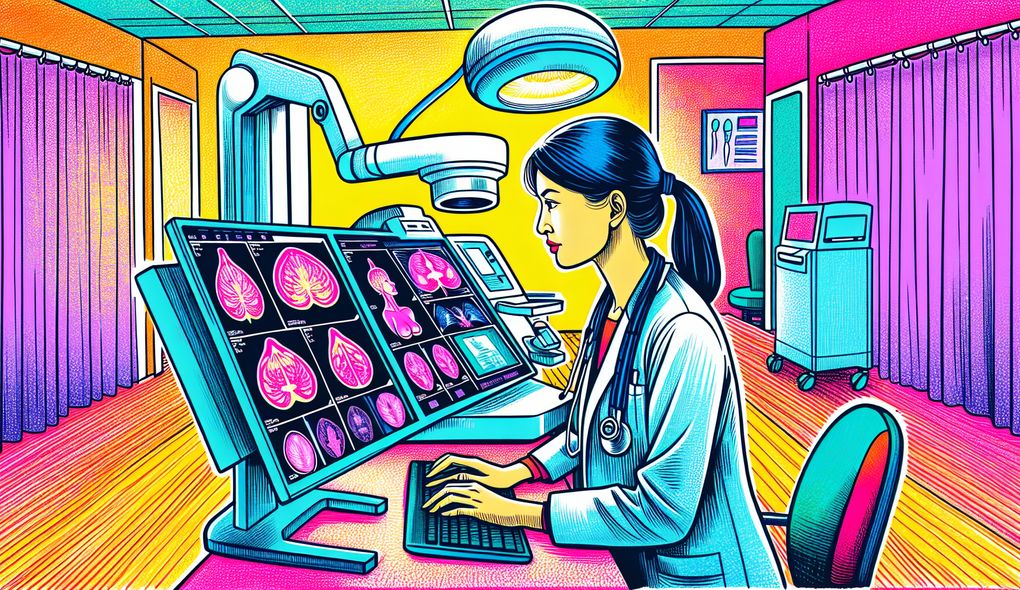Tell me about a time when you had to handle a difficult patient during an imaging procedure.
INTERMEDIATE LEVEL

Sample answer to the question:
One time, during an imaging procedure, I encountered a difficult patient who was extremely anxious and uncooperative. Despite my best efforts to explain the procedure and provide reassurance, the patient was still resistant. To handle the situation, I took a calm and empathetic approach. I listened to the patient's concerns, addressed them individually, and emphasized the importance of the procedure. I offered options for relaxation techniques, such as deep breathing exercises, and provided a comfortable environment. Eventually, the patient started to relax, allowing me to conduct the procedure successfully. This experience taught me the importance of patience, empathy, and adaptability in dealing with difficult patients.
Here is a more solid answer:
During an imaging procedure, I encountered a patient who was extremely anxious and fearful. To handle the situation, I started by establishing open communication. I listened attentively to the patient's concerns and fears, acknowledging their emotions and validating their experience. I explained the procedure in detail, using non-technical language, and answered any questions they had. Recognizing the patient's distress, I offered options to alleviate anxiety, such as providing a calming environment and offering a hand to hold for support. Throughout the procedure, I continuously checked in with the patient, ensuring their comfort and addressing any discomfort promptly. By demonstrating compassion, empathy, and patience, I was able to successfully complete the procedure while maintaining the patient's trust and easing their anxiety.
Why is this a more solid answer?
The solid answer provides more specific details about the candidate's approach to managing a difficult patient during an imaging procedure. It demonstrates their skills in communication, handling difficult patients, and providing compassionate care. However, the answer could still benefit from further elaboration and examples to highlight the candidate's proficiency in these areas.
An example of a exceptional answer:
I encountered a challenging situation during an imaging procedure with a patient who had a severe needle phobia. The patient's anxiety was so high that they refused to proceed with the procedure and started hyperventilating. To address the situation, I immediately halted the procedure and shifted my focus to the patient's emotional well-being. I calmly spoke to the patient, acknowledging their fear and empathizing with their phobia. I reassured them that I would take their concerns seriously and find a solution. With the patient's consent, I involved a nurse who specialized in anxiety management to provide additional support. Together, we developed a tailored plan to gradually expose the patient to the procedure, starting with education and relaxation techniques. We scheduled multiple pre-procedure counseling sessions to gradually desensitize the patient to their fear. As a result of our collaborative efforts, the patient was able to complete the procedure successfully, overcoming their phobia. This experience reinforced the importance of teamwork, adaptability, and personalized care in managing difficult patient situations.
Why is this an exceptional answer?
The exceptional answer goes above and beyond by providing a detailed account of a challenging situation the candidate encountered with a patient who had a severe needle phobia during an imaging procedure. It showcases the candidate's exceptional skills in communication, handling difficult patients, and providing compassionate care. The answer includes specific actions taken, involvement of a specialized nurse, and the collaborative approach used to address the patient's fears. This answer demonstrates the candidate's ability to adapt and find personalized solutions in challenging situations.
How to prepare for this question:
- Familiarize yourself with common patient anxieties and fears related to imaging procedures, such as claustrophobia or needle phobia.
- Practice active listening skills to effectively address patient concerns and validate their emotions.
- Learn relaxation techniques and coping strategies that can be offered to patients to reduce anxiety.
- Gain knowledge about different anxiety management approaches and involve specialized healthcare professionals when necessary.
- Reflect on past experiences with difficult patients and think about how you effectively handled the situations. Consider the strategies and skills you employed.
What are interviewers evaluating with this question?
- Communication skills
- Ability to handle difficult patients
- Compassionate care

